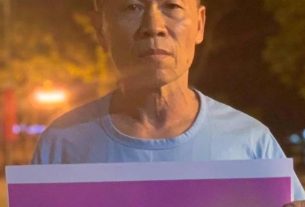In a world where ethics and morality are often compromised, the justification of wickedness has become a troubling and increasingly common occurrence. This pattern, where wrongdoers attempt to rationalize their immoral actions by placing blame on their victims, undermines the very principles of justice and fairness that should govern human interactions. While such actions are inherently wrong, they are frequently defended or downplayed, creating an environment where future wrongdoing is not only expected but also justified.
The Dangers of Rationalizing Wickedness
One of the most concerning aspects of this phenomenon is how easily individuals or groups can justify their harmful behavior. It is not uncommon for perpetrators of injustice to shift the blame onto the victims, claiming that the wrongdoing was somehow deserved or the result of the victim’s own actions. This fallacious reasoning distorts the truth and allows the wrongdoer to evade accountability while further victimizing the one harmed.
This cycle of justification often leads to the continuation and even escalation of immoral behavior. When individuals or groups convince themselves that their actions are justified, the boundaries between right and wrong become blurred. In many cases, this warped thinking spreads, leading others to accept and perpetuate these injustices, often to the detriment of those who are victimized.
We have experienced and seen instances where unicorn companies and trillion dollar institutions have been spurned off the work and idea of individuals who are often left in a position where progressing or moving up in their chosen field is all but impossible due to several stumbling blocks put in place by perpetrators who continues to exploit such individuals all to the shame of those in the know in the host community.
Theft and Exploitation Under the Guise of Justice
One of the most damaging consequences of this mindset is the way in which people can exploit others’ ideas, property, or labor under the pretense of rightful ownership or entitlement. Far too often, valuable intellectual property, projects, or tangible assets are taken from individuals under the false justification of retaliation or retribution for perceived wrongs. This mentality echoes the old adage, “two wrongs don’t make a right.” Just because someone has made a mistake or committed a wrong does not give others the moral authority to steal or harm them further. These discussions are not about petty or everyday items but a person idea and life work, perpetrators are often part of a larger group of government, educational, business and law enforcement institutions which gave them the power and cover needed to perpetrate such heinous crimes.
Theft under the guise of justified retaliation or the blame game is particularly insidious. It creates an environment where rights are trampled upon, and victims are left without recourse. This not only damages individuals and businesses but also erodes the social fabric by normalizing exploitation and injustice. It is essential to understand that no amount of perceived wrongdoing on the part of the victim can ever justify the theft or destruction of their property, ideas, or reputation.
The Need for Accountability and Action
Addressing the justification of wickedness requires a collective commitment to holding individuals and groups accountable for their actions. Too often, those who witness or are aware of such injustices remain silent, either out of fear, indifference, or apathy. This reluctance to take action compounds the problem, allowing wrongdoers to continue unchecked.
In situations where wrongs have been committed, there must be a clear and active effort to compensate the victims and rectify the harm done. Accountability is the cornerstone of justice, and without it, the cycle of exploitation and harm will persist. Those who are in a position to correct injustices should not hesitate to do so, as their silence only perpetuates the suffering of those wronged.
A Call to Change the Narrative
It is crucial that society as a whole rejects the notion that any wrongdoing can be justified by the actions of the victim. There is no moral or legal justification for theft, exploitation, or any form of harm, regardless of the circumstances that led to the conflict. Instead, we must foster a culture that values accountability, empathy, and fairness. By doing so, we can create a more just world where individuals are not preyed upon under the guise of moral justification but are instead supported in their rights and dignity.
The justification of wickedness is a dangerous and corrosive force in society. It not only damages individuals and communities but also undermines the very concept of justice itself. We must actively challenge this mindset and work toward a society where accountability and fairness are the guiding principles, ensuring that victims are heard, supported, and made whole.



